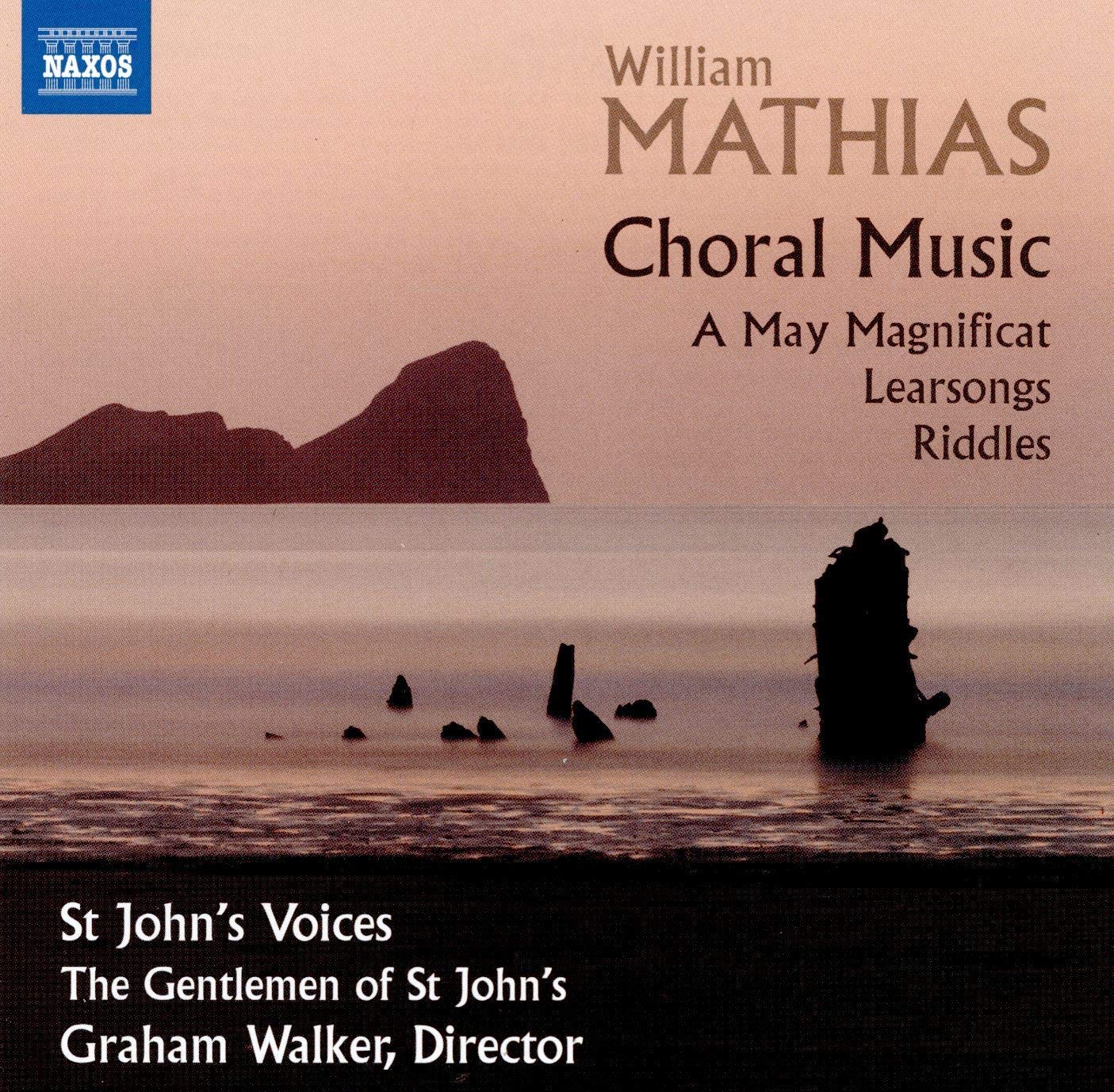 William Mathias: Choral Music St John’s Voices, The Gentlemen of St John’s, Graham Walker (director) (Naxos)
William Mathias: Choral Music St John’s Voices, The Gentlemen of St John’s, Graham Walker (director) (Naxos)
I've a soft spot for neglected instruments, so any CD which includes a credit for chime bars is all right with me. Here they're deployed by percussionist David Ellis in William Mathias’s sublime A May Magnificat, scored for double chorus. Mathias requested that the choirs be of equal size and placed apart, and this Naxos recording really lets the antiphonal effects register. Feeling a little deflated this morning? Buy or download this disc now; it's kept me smiling for weeks. Mathias’s idiomatic choral writing makes for enchanting listening. This is music which cries out to be better known. Take the five Learsongs from 1986: catchy, colourful settings of five Edward Lear nonsense poems for high voices and piano duet. “Calico Pie” has a wonderfully bouncy accompaniment, and it's fun to compare Mathias's mellow “The Owl and the Pussycat” with Stravinsky's peculiar late setting. Mathias’s tonal language is readily accessible and full of ear-tickling detail, as you'd expect from a composer who sought to be useful. A Babe is Born is one of the best contemporary carols I've heard.
Y nefoedd sydd yn datgan gogoniant Duw’s stern opening suggests it'll be grittier stuff, though it's not long before the clouds lift, in a punchy setting of Psalm 19 composed in 1988 to mark the 400th anniversary of the first Welsh translation of the Bible. The two Jesus College Canticles are similar in tone, the Magnificat declamatory and soothing by turns. And what imposing organ writing, Mathias's scrunchy chords scything through the choral textures. Very different in tone is Riddles, Mathias’s take on seven Anglo-Saxon posers in modern translations, scored for six solo voices, choir, bells and piano. Solo voices set the riddles and the choir looks for the answers; how the two groups interact is engrossing. Performances are excellent throughout. Every section of Graham Walker’s St John’s Voices gets a chance to shine, and the solo parts in Riddles are taken by The Gentlemen of St John’s. The recording quality is ideal, the words never getting lost, and full texts can be downloaded from the Naxos website. A bargain.
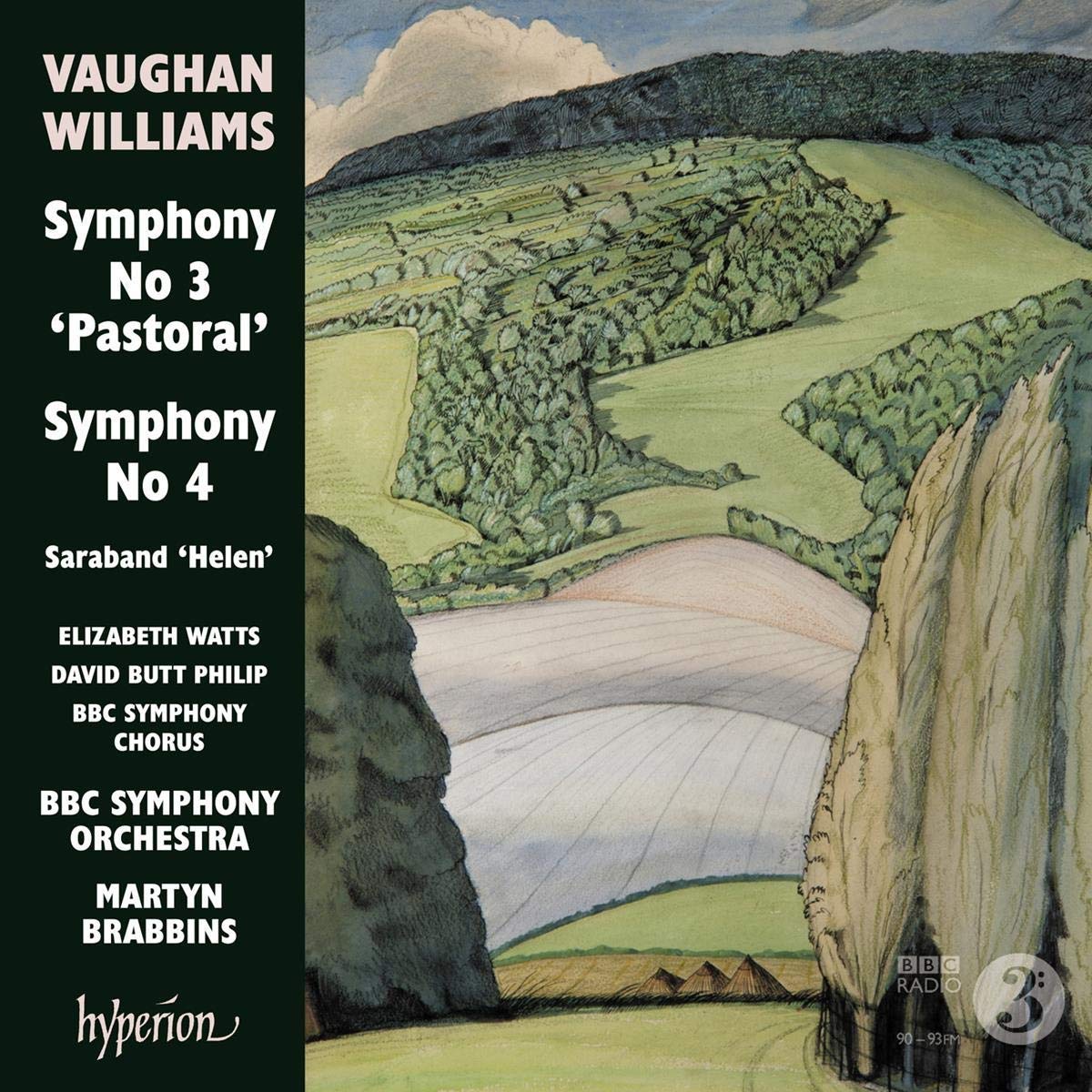 Vaughan Williams: Symphony No 3 ‘Pastoral’, Symphony No 4 BBC Symphony Orchestra/Martyn Brabbins (Hyperion)
Vaughan Williams: Symphony No 3 ‘Pastoral’, Symphony No 4 BBC Symphony Orchestra/Martyn Brabbins (Hyperion)
It makes good sense to couple Vaughan Williams’ 3rd and 4th symphonies on disc, the earlier work looking back to the composer's military service during World War 1, the latter's uncompromising angriness reflecting the turbulent mid-1930s. Not that Vaughan Williams gave any hints as to what No 4 was actually about, apart from gruffly admitting that he wasn’t sure if he liked it, and that “all I know is that it's what I wanted to do at the time.” Martin Brabbins’ account of the work is, perhaps, too beautiful, the work’s sharper edges smoothed over: the dissonant brass chords of the opening should grate more. But how marvellous the second subject sounds, the BBC Symphony strings wonderfully rich and secure. And the movement’s parched, soft coda is fantastic here, as is Daniel Pailthorpe’s lonely flute solo at the close of the slow movement. Brabbins seems more at home in the scherzo's trio than in the bitter outer movements, though he's superb in the lead in to the finale, Vaughan Williams paying explicit homage to Beethoven.
This "Pastoral" Symphony is unequivocally excellent, however, the music’s “massive quietness” genuinely disconcerting. Brabbins taps into the underlying melancholy, the work’s pale pastel colours enlivened by sporadic flashes of colour. Wind and brass solos are outstanding; the haunting horn and trumpet calls in the slow movement handsomely played. Four minutes or so in, and you should be blubbing. I was. Soprano Elizabeth Watts is magnificent in the slow finale. Exceptionally good, and handsomely recorded too. As a coupling, there's Brabbyns’ orchestration of Saraband ‘Helen’, an unpublished cantata dating from 1913-1914 setting lines from Marlowe’s Doctor Faustus; nine minutes of melting choral loveliness, the orchestra joined by tenor David Butt Philip and the BBC Symphony Chorus.
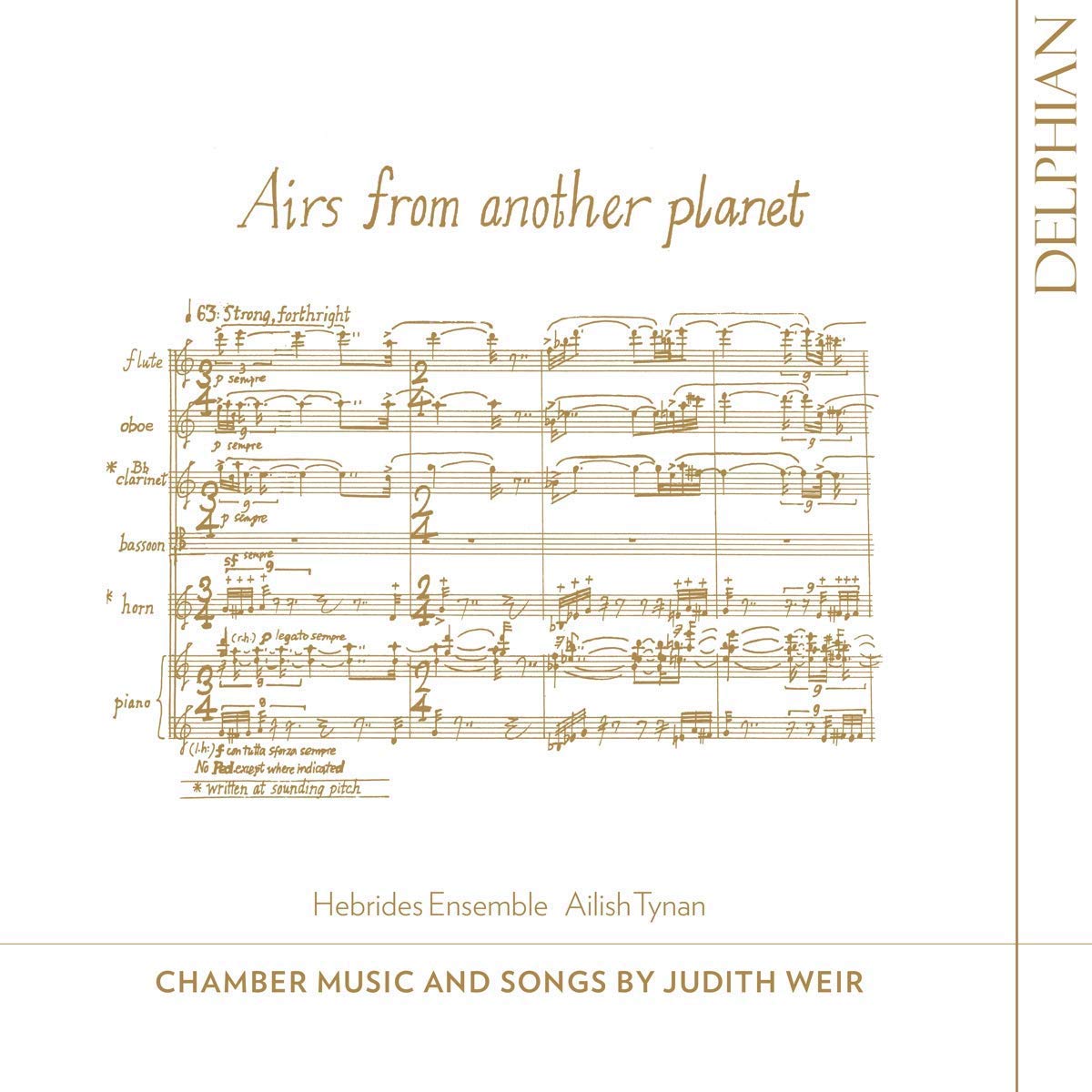 Airs from another Planet - Chamber music and songs by Judith Weir Hebrides Ensemble, with Ailish Tynan (soprano) (Delphian)
Airs from another Planet - Chamber music and songs by Judith Weir Hebrides Ensemble, with Ailish Tynan (soprano) (Delphian)
The title track here is a delight, a 1986 commission for the Nash Ensemble imagining what traditional Scottish music might sound like played by a human colony marooned on an isolated Scottish island for generations. It's a crazy conceit, and composer Judith Weir pulls it off, trace elements of the original tunes becoming more apparent with repeated listenings. I'm especially fond of the little asymmetrical jig, the melody vainly trying to assert itself. I'd forgotten how enjoyable Weir’s music is, as heard on this handy anthology: Weir’s music is irresistible – smart, elegant and involving, smiles more forthcoming than scowls. Three Chorales pairs the Hebrides Ensemble’s artistic director and cellist William Conway with pianist James Willshire, the instruments reaching agreement in the final chorale, based on a theme by Hildegard of Bingen. Bingen’s music also informs O Viridissima, a haunting four-minute piano trio closely following the original hymn’s text. The Bagpiper’s String Trio was inspired by the story of captured Jacobite piper James Reid, hanged in 1786 despite being unarmed, an English judge ruling that the bagpipe was an instrument of war (a ruling which was only reversed in 1996). This "very short instrumental opera" lets us hear the snap of Reid’s pipes in its opening movement, peace finally attained at the close of the final lament.
Two short song cycles are performed by soprano Ailish Tynan. Nuits d’Afrique is a modern companion piece to Ravel's Chansons madécasses, scored for the same forces and setting French-language poems by women writers. Weir makes superb use of the piano’s pedal notes in Le tam-tam, and there's a charming, bittersweet song from a vegetarian crocodile who'd rather play with children than eat them. Tynan’s clear diction and immaculate French are perfect for this repertoire, and she's equally good in Really, its texts by 19th century German writers. Tynan’s mixture of speech and song brings these quirky miniatures to life, whether the subject is donkeys, porridge or crafty children. It's all highly involving, and an ideal introduction to an engaging contemporary composer. Engineering is impressive, and the sleeve art allows us to marvel at Weir’s skills as a copyist. Who needs Sibelius software when your handwritten musical script is this beautiful?

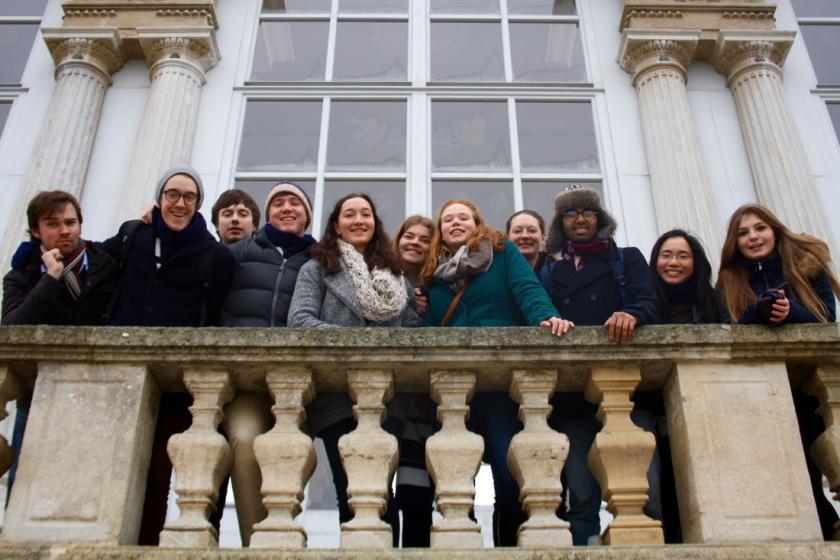

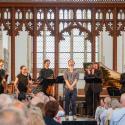










Add comment